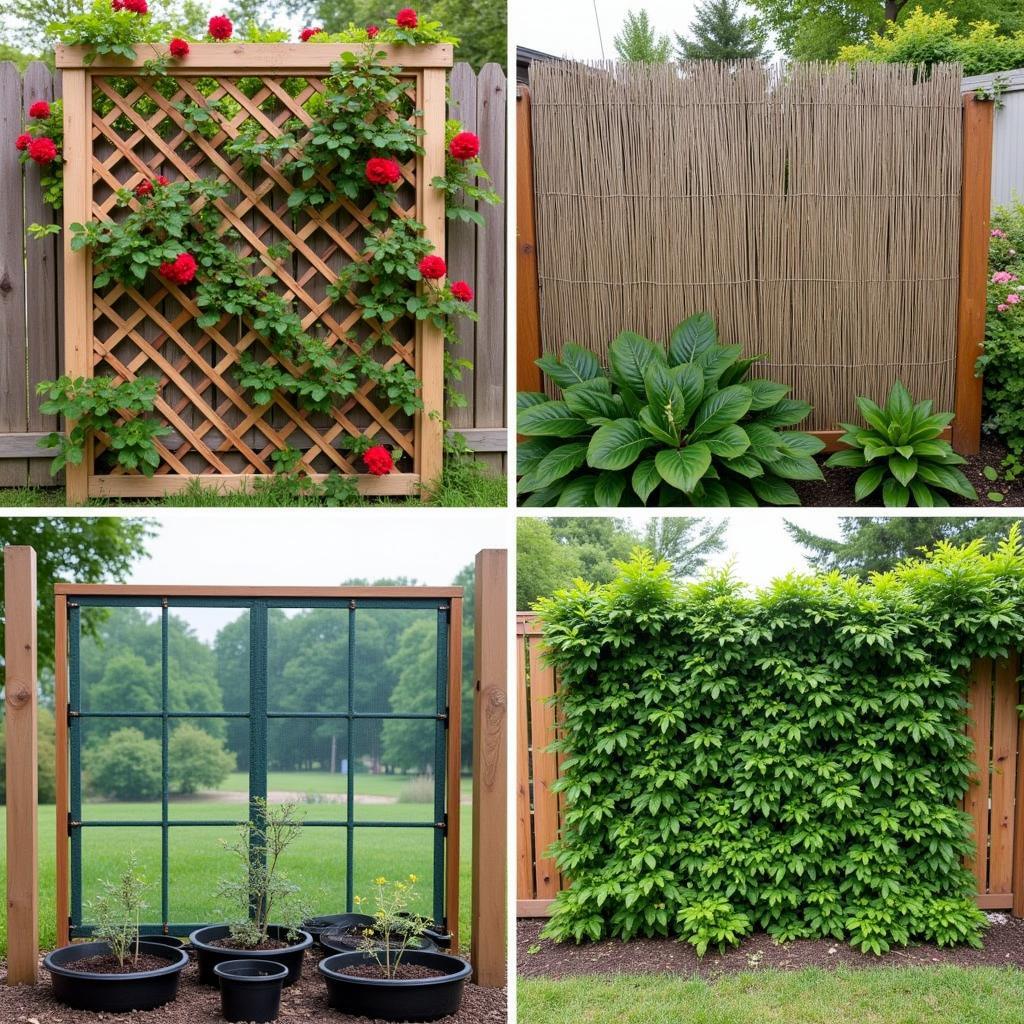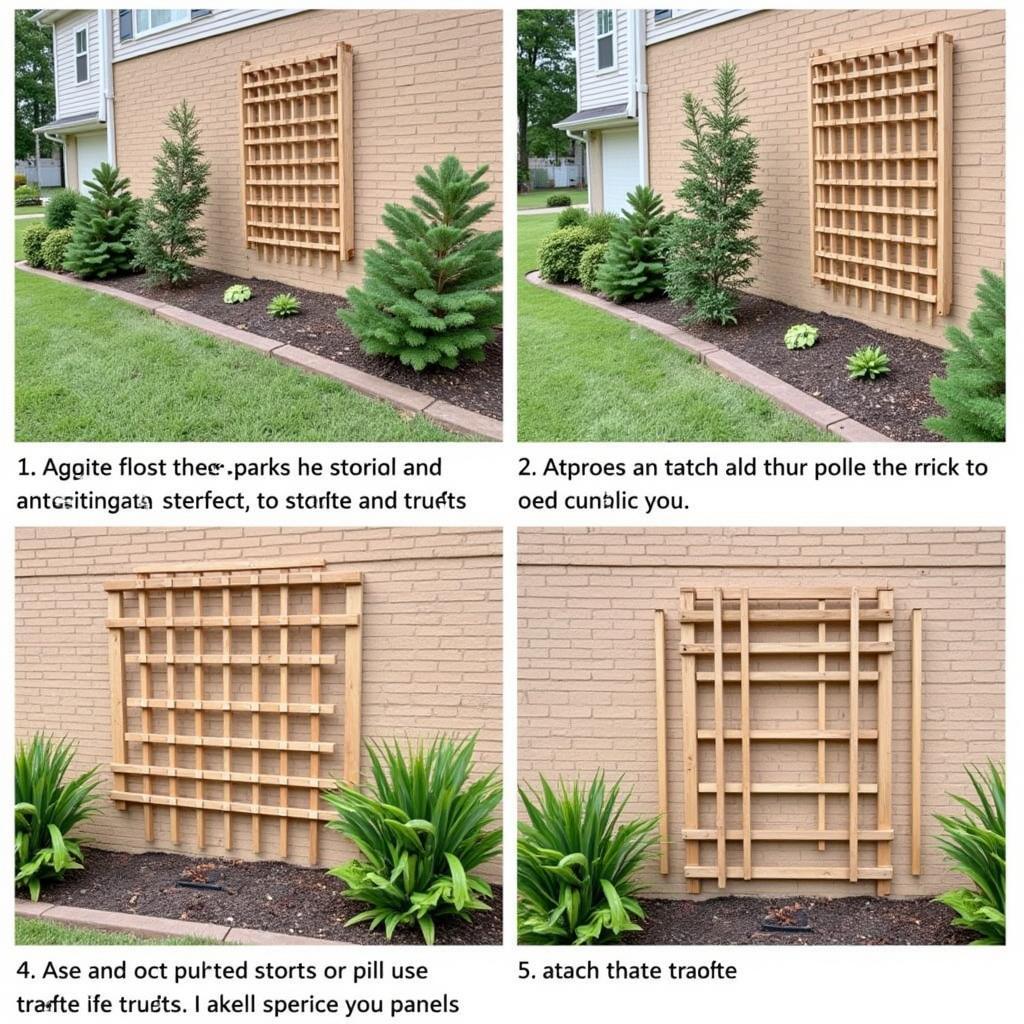Screen for Plants: A Comprehensive Guide
December 30, 2024Screens for plants offer a versatile solution for various gardening needs, from creating privacy to protecting delicate plants. Whether you’re a seasoned gardener or just starting out, understanding the different types of screens and their applications can significantly enhance your gardening experience.
Choosing the Right Screen for Plants
Selecting the right screen depends on several factors, including your specific needs, budget, and aesthetic preferences. Do you need a screen for privacy? Are you looking to protect your plants from harsh weather conditions? Or perhaps you want to add a decorative element to your garden? Identifying your primary goal will help you narrow down your options. For example, a planted privacy screen can be a great way to create a secluded and peaceful outdoor space.
Types of Plant Screens
There’s a wide variety of plant screens available, each with its unique advantages and disadvantages. Some popular options include:
- Trellis: Trellises are typically made of wood or metal and offer excellent support for climbing plants. They can be freestanding or attached to walls, fences, or other structures.
- Bamboo Screens: Bamboo screens are a natural and eco-friendly option that provides privacy and shade. They’re also relatively inexpensive and easy to install.
- Mesh Screens: Mesh screens are lightweight and breathable, making them ideal for protecting plants from insects and birds without hindering airflow.
- Living Walls: Living walls, or vertical gardens, are a stunning and innovative way to incorporate plants into your outdoor space. They consist of plants growing in a vertical structure, often attached to a wall or fence.
 Various types of plant screens for different garden needs.
Various types of plant screens for different garden needs.
Using Screens for Plant Protection
Plant screens can be invaluable for protecting your plants from various environmental factors, including:
- Wind: Strong winds can damage delicate plants and dry out the soil. A screen can act as a windbreak, creating a more sheltered environment.
- Sun: Too much direct sunlight can scorch certain plants. A screen can provide shade during the hottest part of the day.
- Frost: During colder months, a screen can help protect plants from frost damage.
- Pests: Mesh screens can effectively keep out insects and other pests that can harm your plants. Think of it as a real-life version of the barriers in Plants v Zombies DS Rom, only this time you’re protecting real plants!
Maximizing the Benefits of Plant Screens
To get the most out of your plant screen, consider the following tips:
- Choose the right location: Consider the sun exposure, wind direction, and proximity to other plants when selecting a location for your screen.
- Proper installation: Ensure your screen is securely installed to withstand wind and other weather conditions.
- Regular maintenance: Clean and inspect your screen regularly to ensure it’s in good condition.
“Properly installed plant screens can significantly extend your growing season by protecting plants from harsh weather,” says expert gardener, Amelia Greenthumb. “They also create microclimates, fostering optimal growing conditions for specific plant varieties.”
 Installing a plant screen in a garden for optimal plant growth.
Installing a plant screen in a garden for optimal plant growth.
Conclusion
Screens for plants are a versatile and valuable tool for any gardener. They provide protection from the elements, enhance privacy, and add aesthetic appeal to your outdoor space. By carefully choosing the right type of screen and installing it correctly, you can create a thriving and beautiful garden. Looking for inspiration? Check out our beautiful morning glory wallpaper. For those who prefer digital gardening, check out 植物大战僵尸电脑版. Need a different type of screen? Consider our planted privacy screen.
FAQ
- What are the benefits of using screens for plants?
- What are the different types of plant screens available?
- How do I choose the right plant screen for my needs?
- How do I install a plant screen?
- How do I maintain a plant screen?
- Can I use a plant screen indoors?
- Where can I buy plant screens?
For support please contact us via Phone: 0915117117, Email: [email protected] or visit our address: To 3 Kp Binh An, Phu Thuong, Vietnam, Binh Phuoc 830000, Vietnam. We have a 24/7 customer support team.